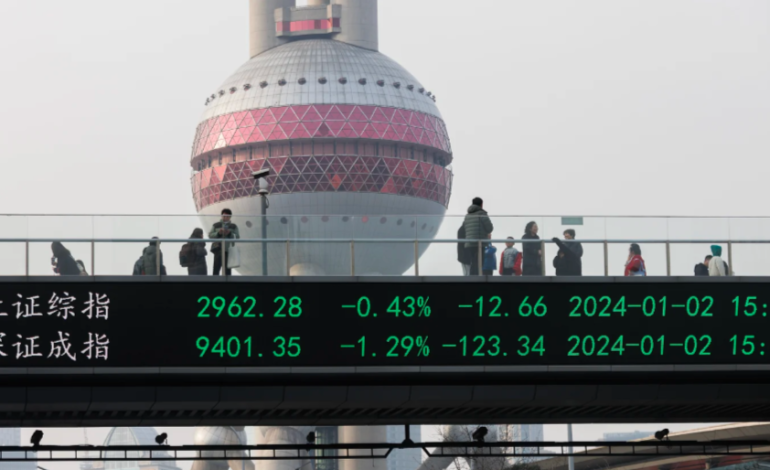Indian Rupee Faces Downward Pressure Amid Investment Shift to China

As trading resumes after a holiday, Indian stocks are anticipated to have a lackluster opening due to rising tensions in the Middle East and continued foreign selling, particularly in light of a significant surge in Chinese equities.
The Indian rupee, having performed poorly in the last quarter, is likely to face additional challenges as investment flows shift towards China.
The rise in gold prices has adversely impacted gold loan companies in India. Shares of major players like Manappuram Finance and Muthoot Finance dropped following a Reserve Bank of India (RBI) report that pointed out procedural lapses in the sector. With the RBI tightening its oversight of shadow bankers, especially those experiencing significant growth in gold loan portfolios, industry experts believe that gold lenders will become more conservative in their lending practices.
The Indian rupee was the worst-performing currency in Asia last quarter, and analysts anticipate that the situation may worsen due to a widening current account deficit. A surge in gold imports, following a recent cut in customs duty, could further exacerbate the rupee’s challenges. Additionally, foreign inflows into India are expected to decrease as China emerges as an attractive investment alternative. Mizuho Bank forecasts the rupee could depreciate to 84.10 per dollar by the end of December, marking a 0.3% decline from Tuesday’s closing value.
While demand for cement is projected to increase after the monsoon season, the industry is grappling with excess capacity, which may lead to price volatility. InCred Equities estimates a potential 15% to 20% rise in demand, but cautions that stabilization in prices will only occur once the overall capacity utilization exceeds 80%.
Recent analyst reports have led to varied outlooks on key Indian stocks. Notable changes include Investec downgrading Infosys to a “Sell” rating with a target price of 1,720 rupees, while Tata Consultancy Services (TCS) received a “Hold” rating with a target price of 4,100 rupees. Dabur India was also cut to a “Hold” rating.
Exchange-traded funds (ETFs) focusing on Chinese equities have experienced a remarkable rally, fueled by recent stimulus measures from the Chinese government aimed at bolstering a sluggish economy. Several popular Chinese ETFs, including the KraneShares CSI China Internet ETF (KWEB) and the iShares China Large-Cap ETF (FXI), reported significant gains as foreign investors sought to capitalize on these developments.
CNBC, Bloomberg, and the Economist contributed to this report.








